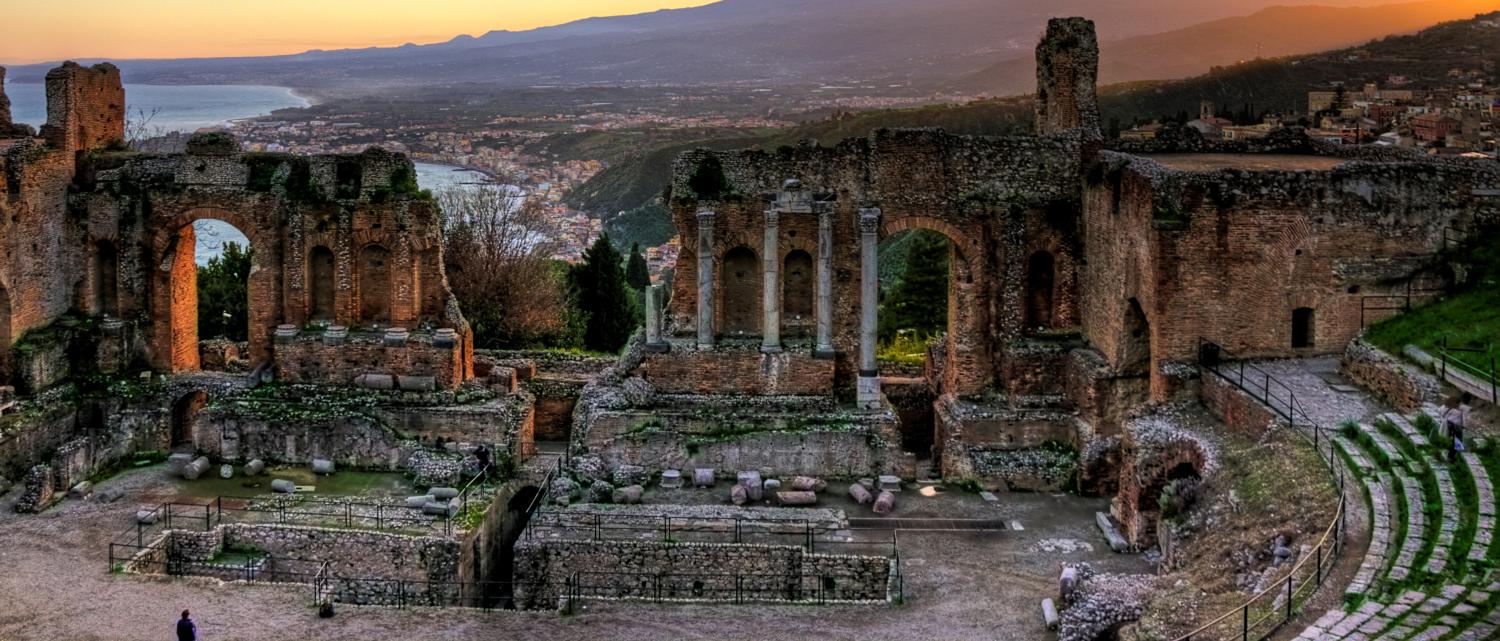Donald Trump is on the road, escaping from Washington. His next main stop is in Sicily, today and tomorrow, where he will attend the 2017 G7 leaders’ meeting.
These are highly orchestrated events. Every official, every journalist (around 4000 of them) and even every leader is expected to stick closely to the text. What can we expect from Trump’s first major international economic meeting? He seems to enjoy throwing away the official text. His Italian hosts have probably had many sleepless nights in recent weeks worrying about how things will go.
What to make of these international summits? In truth, they are partly circuses, often incredibly expensive. Heads of governments compete with each other to make each meeting larger and grander than the previous one. They are an opportunity for the host nation to demonstrate diplomatic influence on the global stage and, hopefully, to promote commercial interests as well.
But there is also substance to these meetings, even if it is sometimes hard to discern. And considerable benefit flows from the opportunity for leaders to spend some time with each other. Mutual confidence can be strengthened when leaders meet, and the weighty declarations issued after the conferences help define the broad directions of international thinking about global issues.
The list of invitees is often of interest. Two features of the roll call of participants in Sicily are striking. First, four of the seven country leaders are attending their first G7 meeting as head of government: Donald Trump, as well as Theresa May (UK), Emmanuel Macron (France) who has barely had time to set foot inside his presidential office in Paris, and the host of the meeting, Paolo Gentiloni (Italy). In contrast, Angela Merkel (Germany) and Shinzo Abe (Japan) have each attended many international conferences, while Justin Trudeau (Canada) has been in office since late 2015, long enough to have become experienced at summit gatherings.
Doubtless the leaders will be well briefed. Nevertheless, the fact that the conference will be dominated by first-timers, combined with Trump’s unpredictability, means the dynamics of this meeting are more uncertain than usual.
Second, the overall list of key attendees - national leaders plus more than ten other invited delegations - is strongly reflective of European concerns. In addition to the core G7 national leaders, the EU gets two seats at the larger table (Commission President Juncker and Council President Tusk) along with invited countries (Ethiopia, Kenya, Nigeria, Niger, Tunisia) and organisations such as the African Union, the African Development Bank, the Organization for Economic Cooperation and Development (OECD, based in Paris), the UN, IMF and World Bank.
Representation from the Asia Pacific (population close to 50% of the global total) is notably absent. China, India, and ASEAN countries have no seat at the table. While the African Development Bank has been invited, the Asian Development Bank has not. Latin America is entirely unrepresented as well.
What, then, are likely to be the main issues at the Sicily meeting? The final Leaders’ Declaration has presumably already been drafted by the top officials (the 'sherpas') and will be subject, Donald J Trump permitting, to only minor amendment following the leaders’ meetings. What is the Leaders’ Declaration likely to declare?
The list of issues set out one year ago at the previous G7 meeting in Japan provides a guide. This 'Christmas Tree' of topics (as some observers labeled it) includes attention to the world economy, migration and refugees, trade, infrastructure, health, women, cyber issues, anti-corruption measures, climate, and energy. Quite a list!
At international meetings of this kind, especially with China absent, the views of the US still tend to be hard to resist. The central topic for the Sicily Summit would appear to be what the US - and Donald Trump in particular - is going to agree to in the Leaders’ Declaration. But the broad outlines of many aspects of the international policies of the Trump Administration are still unclear. The Leaders’ Declaration from Sicily may begin to provide additional indications of US policy on key global issues. Looking over the Leaders’ Declaration from last year in Japan, there are numerous ideas that it is hard to imagine a Trump Administration signing up to:
- 'Global growth is our urgent priority...we commit to strengthening our economic policy responses in a cooperative manner...'
- 'The G7 recognizes the ongoing large scale movements of migrants and refugees as a global challenge which requires a global response. We commit to increase global assistance to meet immediate and long-term needs of refugees and other displaced persons...'
- 'We reaffirm our commitment to keep our markets open and to fight all forms of protectionism...We also encourage trade liberalization through regional trade arrangements including the Trans-Pacific Partnership...'
- 'We commit to promote Universal Health Coverage...'
- 'The G7...commits to taking the necessary steps to secure ratification, acceptance or approval of the Paris Agreement as soon as possible...'
- '...we are determined to accelerate our work towards the transition to an energy system that enables decarbonisation of the global economy...'
During the last month or so, sherpas from the US and Europe have presumably been grappling with the challenge of redrafting these and many other passages. They need to ensure that Donald Trump will at least make agreeable noises in Sicily. Within the next 72 hours, we will find out what sort of Brave New World the Sicily G7 meeting promises.
